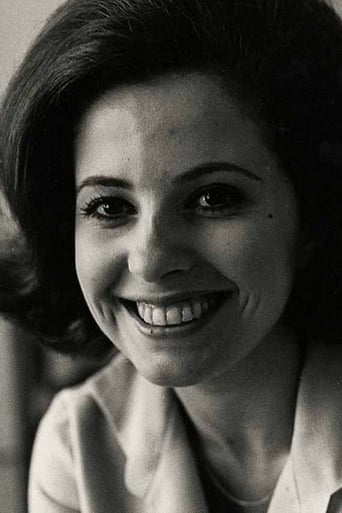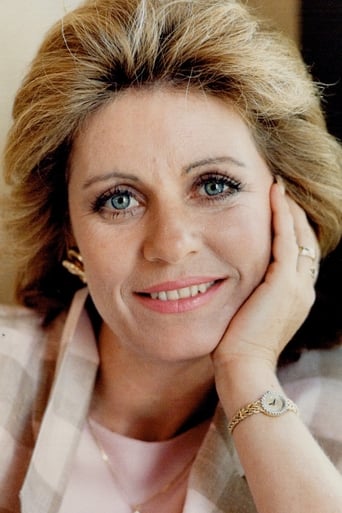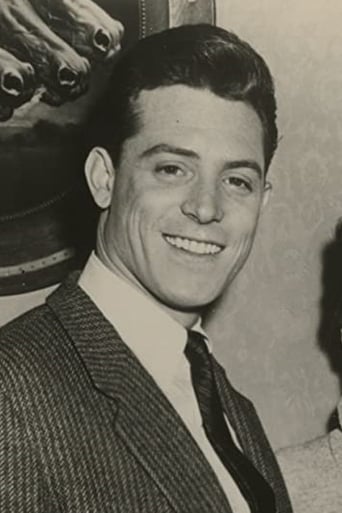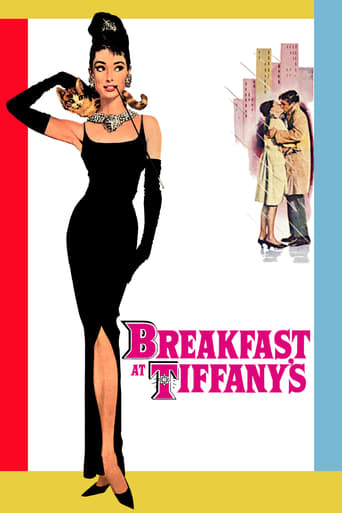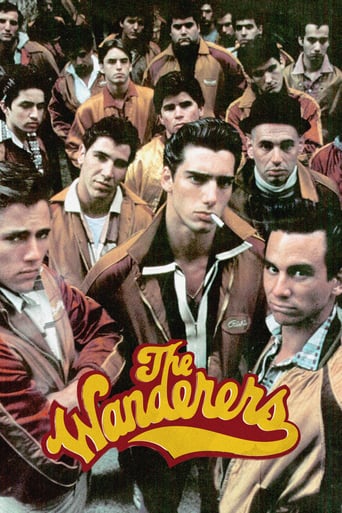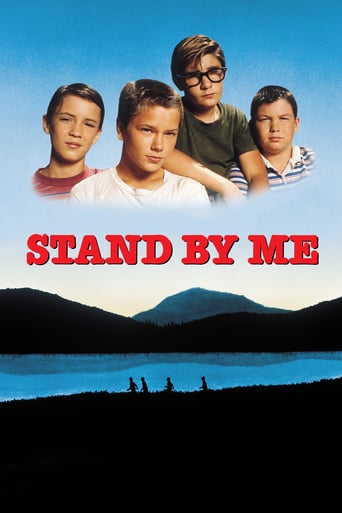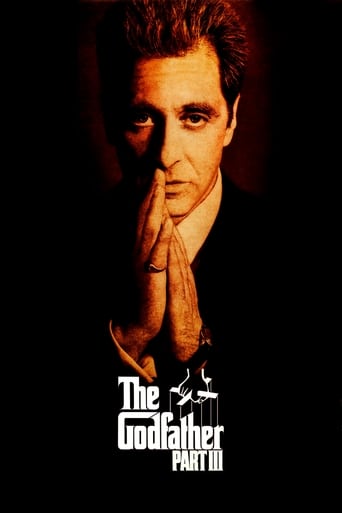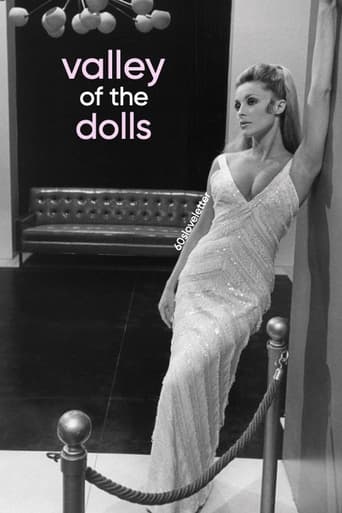
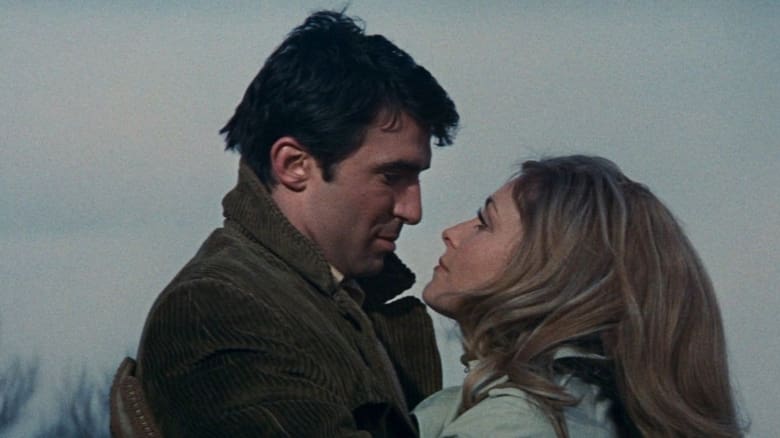
Valley of the Dolls (1967)
In New York City, bright but naive New Englander Anne Welles becomes a secretary at a theatrical law firm, where she falls in love with attorney Lyon Burke. Anne befriends up-and-coming singer Neely O'Hara, whose dynamic talent threatens aging star Helen Lawson and beautiful but talentless actress Jennifer North. The women experience success and failure in love and work, leading to heartbreak, addiction and tragedy.
Watch Trailer
Cast
Similar titles
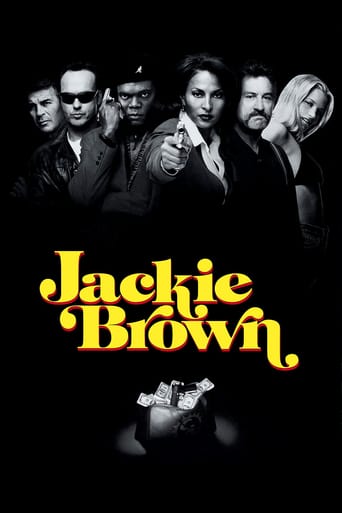
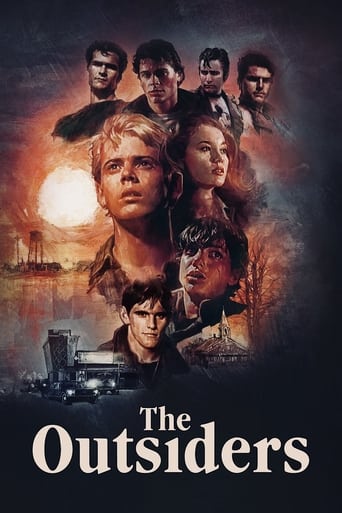

Reviews
Sick Product of a Sick System
This movie was so-so. It had it's moments, but wasn't the greatest.
Unshakable, witty and deeply felt, the film will be paying emotional dividends for a long, long time.
The story, direction, characters, and writing/dialogue is akin to taking a tranquilizer shot to the neck, but everything else was so well done.
One of the funniest "bad movies" ever made, "Valley of the Dolls" is one of three Jacqueline Susann novels made into films, and without a doubt, the best. In fact, the other two ("The Love Machine" and "Once is Not Enough") pale in comparison to this, both in the history of their filming, and in the outrageousness of the plot line. It's a tale as old as time, a story of three struggling young women in New York City who will all find struggles as they are objectified, envied, turned into drunks and druggies, and like "Three on a Match", one will not survive, one will struggle to survive, and the third will find happiness through the old fashioned notions of what a woman should be. These three ladies are Patty Duke, Barbara Parkins and Sharon Tate, all talented in their own way, and while Parkins might be the brains of the trio and Tate the buxom stereotypical dumb sexpot, it's Duke who gets the majority of the attention. Coming off of winning an Oscar, a hit TV show, a fairly successful movie ("Billie"), Duke was the one who got the big build-up, although photographers took notice of Tate's beauty and "Peyton Place" fans flocked to see Parkins on the big screen. "Valley of the Dolls" is as scandalous as that New England small town, and set in the world of high fashion, advertising and the entertainment world, the Big Apple is not at all like that sleepy little town where every seemingly noble citizen had a scandal. Sure, the scandals here are present, but it's expected in a noisy city like New York where you can blend into the crowds to escape from notoriety. The women all end up in bad relationships, and one will find herself greatly abused by men, while one takes the desperate way out and the third realizes the only way she can escape a similar ending is to escape from it altogether.Then there's Susan Hayward's Helen Lawson, a Broadway star of the Ethel Merman dynamic who is resentful of the upstart Neeley O'Hara and has her one musical number cut from the show they are in together. This is based on an alleged (and disproven theory) of a story that happened between Merman and supporting player Betty Hutton years before (and could have conceivably have happened with any other major star as well), and in the case of Duke's Neeley, she turns to alcohol and drugs to escape from the pressures of a rising young musical actress on Broadway. Hayward is as bitchy as a Broadway diva can be, obviously scarred of losing her grasp as the leading star of the musical theater, and treats Duke with disdain from the moment they meet. But after making somewhat of a name for herself, Duke pulls out one last stop to get revenge on Hayward, and it is not without cost to either of them.This is filled with great bad dialog, a few songs (including a beautiful Burt Bacharach theme song sung by Dionne Warwick) and some moments of pure camp that audiences still treasure. Who can forget Duke's beads wrapping themselves into a pretzel while singing "It's Impossible", and the bad set of Hayward's "I'll Plant My Own Tree" in her one musical number where she proclaims a love of humanity but inspires nothing but hatred from co-stars and those in the theater community who know what a demanding diva she can be. I would have found it disconcerting to have seen Judy Garland in this part, as while she could have certainly been commanding, and had played a few tough broads before, none of her characters were ever as mean. It's been rumored that Susann wrote Neeley about her, which would have been strange if Garland had to take down Duke while playing a variation of her old pal Ethel Merman. As for Parkins and Tate, they have a more difficult task in playing characters not as colorful as Duke's extremely troubled Neeley. Parkins is smart, sensitive and unlucky in love, pretty without being a sexpot or brassy. She's by far the most likable of the three, and manages to make her character become human, not saintly, and sort of the protectress of the three. Tate finds out the hard way that being buxom and sexy isn't always a plus in getting ahead, because nobody takes her serious as a talent, thinks she's stupid, and eventually this only leads her to make a living with one item required: a body. Of the three, she is the saddest. Duke keeps falling down and getting up, yet never seeming to learn any lessons. When she ends up passed out in a seedy hotel, obviously having just been used for the most vile of street trash, it really is sad to see how far one person with so much potential can fall.So this is Susann's warning to young girls everywhere longing for a career in the bright lights of Broadway or the world premieres of a Hollywood movie: unless you really have what it takes to make a talent, try and think of a different way of making a living. While there are male characters here, they really are supporting, only bringing on the conflict or not being able to handle the neuroses of these three different women. This film was very bold in some of the subject matters it dealt with, including drug abuse, alcoholism, pornography and in the case of the man Duke ends up with, homosexuality. Hollywood had changed a lot since "Three on a Match", and even if that had the benefit of being made before the production code, it didn't have the social issues of the 60's to show the grittiness of life in the big city as "Valley of the Dolls" did 35 years later.
Film version of Jacqueline Susann's best-selling novel chronicling the rise and fall of three young ladies in show business.If I understand this correctly, the film was released and critics hated it, but audiences loved it. When Sharon Tate was murdered, the film was released again, and audiences still loved it. Years later, when it was screened for a new generation, it was even noted that people loved it because it was a bad movie. So strange.I will give them credit for going into certain questionable areas like "art films" and abortion, drug addiction and more. By the 1960s, this may not have been so shocking, but still brave enough that it is worth noting. But yet, it still seems sort of bland. This film is nothing compared to the crazy Meyer-Ebert collaboration "Beyond the Valley of the Dolls".
Have been reading through the reviews here and am amazed that no one has pointed out the thing that is most weird about this film. Which is: that this film is set in 1967 and yet there is absolutely NO pop music in it. Not even in the background on the radio! And remember this is the year of the Monterey Festival, the Summer of Love, Swinging London, Pepper, Forever Changes, Hendrix (the list could go on and on).Some of the other reviewers say this film is 'pure sixties' but no, no, NO! There's a tiny nod at fashion with Parkins' up-market outfits but that's about it. There's no fab gear, no op art, no e-type jags, no mini cars or mini skirts, this is just NOT 1967!This film hasn't even tried to be 'with-it', hasn't even put any 'token' pop or rock music in. You know the kind: 'groovy' party music with Hammond organs and bongos and electric guitars and go-go girls!There IS 'music' in this film, however, a LOT of it. You can't stop it. It keeps popping up to torture you like the monster in a horror movie. Now, I dislike show music, even when it's competent, but this is BAD show music! Others have gone into detail about it so I won't repeat their comments.You can't believe that in this same year you had The Graduate with wonderful songs by Simon and Garfunkel! It's like the makers of this film were on a totally different planet - the planet of Fuddie-duddie!I did watch it all the way though (albeit noodling on the guitar the whole time) and I have to agree with nearly everyone about one thing: Sharon Tate is very sweet.Thanks for reading! Bye!
Don't watch this movie expecting it to be anything like the book. I decided to watch this movie because I had just finished reading the book - so disappointing!It's obvious right from the beginning that the creators of the movie had no intention of staying true to the book (and not just because they had to condense the story for time). I think one of the only things they kept accurate from the book were the characters' names. Some of the events in the middle were similar, but apart from those, from beginning to end most of the characters and their sentiments, looks, and story-lines were so completely different - it was awful.

